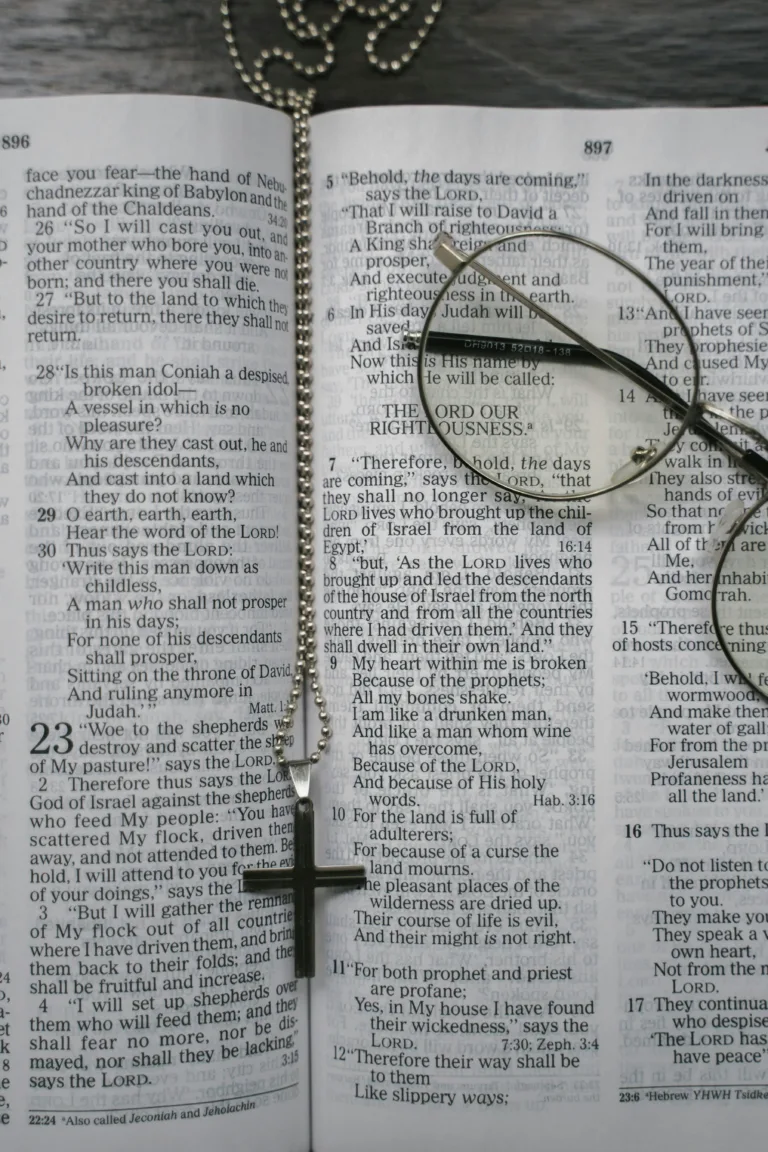The Power of Forgiveness: Transforming Lives Through Grace
Forgiveness is one of the most challenging yet transformative commands in the Christian life. When we choose to forgive, we reflect the heart of God, who forgives us through Christ. The power of forgiveness does not merely mend relationships; it also frees the soul from the burdens of bitterness and resentment, enabling us to walk in the freedom Christ provides. This article will explore biblical principles for forgiveness, offer practical tips for cultivating a forgiving heart, and examine the blessings that follow when we choose to obey God’s call to forgive.
What Is Forgiveness?
Forgiveness, at its core, is a decision to release someone from the debt of their offense. It is not forgetting the wrong or pretending it never happened but choosing not to hold the offense against them. Paul reminds us in Ephesians 4:32, “Be kind to one another, tenderhearted, forgiving one another, as God in Christ forgave you.” Our model for forgiveness is God Himself, who forgave us through the sacrifice of His Son.
Forgiveness is an act of grace. Just as we do not earn God’s forgiveness, we cannot demand that others earn ours. Instead, forgiveness flows from a heart transformed by the gospel, recognizing the immense debt we have been forgiven.
The Cost of Unforgiveness
Harboring unforgiveness comes at a great cost, both spiritually and emotionally. Jesus warns in Matthew 6:15, “But if you do not forgive others their trespasses, neither will your Father forgive your trespasses.” This is not a conditional statement implying that our forgiveness earns God’s forgiveness. Instead, it underscores that an unforgiving heart is incompatible with the gospel.
Unforgiveness also traps us in a cycle of bitterness, robbing us of peace and joy. Hebrews 12:15 cautions, “See to it that no one fails to obtain the grace of God; that no ‘root of bitterness’ springs up and causes trouble, and by it many become defiled.” Bitterness not only affects us but also poisons our relationships and hinders our witness.
Biblical Principles for Forgiveness
- Recognize God’s Forgiveness: To forgive others, we must first understand the depth of God’s forgiveness toward us. In the parable of the unforgiving servant (Matthew 18:21-35), Jesus illustrates how absurd it is for those forgiven of an immeasurable debt to refuse to forgive others. Meditating on passages like Psalm 103:12 (“as far as the east is from the west, so far does he remove our transgressions from us”) can help us grasp the magnitude of God’s grace.
- Forgive From the Heart: Forgiveness is not merely an outward action but an inward decision. Jesus taught that true forgiveness must come from the heart (Matthew 18:35). This means letting go of the desire for revenge and entrusting the matter to God, who is the righteous Judge (Romans 12:19).
- Seek Reconciliation When Possible: While forgiveness is a personal decision, reconciliation requires both parties to come together. Paul encourages us in Romans 12:18, “If possible, so far as it depends on you, live peaceably with all.” When reconciliation is not possible or safe, we can still forgive and pray for the other person.
- Depend on the Holy Spirit: Forgiveness is often beyond our natural ability, especially when the offense is severe. But through the power of the Holy Spirit, we can forgive as God commands. Philippians 4:13 assures us, “I can do all things through him who strengthens me.”
Practical Steps to Forgive
- Pray for the Offender: Jesus commands us to love our enemies and pray for those who persecute us (Matthew 5:44). Praying for someone who has wronged us softens our hearts and helps us see them through God’s eyes.
- Confess Your Struggle: Be honest with God about your pain and difficulty in forgiving. Psalm 62:8 invites us, “Trust in him at all times, O people; pour out your heart before him; God is a refuge for us.” Sharing your struggle with a trusted Christian friend or counselor can also provide encouragement and accountability.
- Release the Offense to God: Forgiveness involves relinquishing your right to hold the offense against the person. This does not mean ignoring the need for justice, but trusting God to deal with the matter in His perfect timing (Romans 12:19).
- Replace Bitterness With Kindness: Forgiveness is not just about letting go; it is also about extending grace. Paul’s exhortation in Ephesians 4:31-32 reminds us to replace bitterness, wrath, and anger with kindness, tenderheartedness, and forgiveness.
- Reflect on the Cross: Whenever forgiveness feels impossible, meditate on the cross of Christ. Jesus endured unimaginable suffering to forgive our sins, setting the ultimate example of sacrificial love (Luke 23:34).
The Blessings of Forgiveness
- Freedom From Bondage: Forgiveness liberates us from the chains of bitterness and resentment. Jesus came to proclaim liberty to the captives (Luke 4:18), and forgiveness is a key part of that freedom.
- Restored Relationships: While reconciliation is not always possible, forgiveness often paves the way for restored relationships. Proverbs 17:9 teaches, “Whoever covers an offense seeks love, but he who repeats a matter separates close friends.”
- A Clear Conscience: Forgiveness brings peace to our hearts and minds. When we forgive, we can stand before God with a clear conscience, knowing we have obeyed His command (Acts 24:16).
- A Powerful Witness: Forgiveness is countercultural. When we forgive, we testify to the transforming power of the gospel. Jesus said in John 13:35, “By this all people will know that you are my disciples, if you have love for one another.”
Conclusion: Embracing the Call to Forgive
Forgiveness is not an option for the believer; it is a command rooted in the gospel. While the process can be painful and difficult, the rewards far outweigh the cost. Through forgiveness, we experience freedom, peace, and the joy of reflecting God’s grace to a watching world.
As you consider the power of forgiveness, reflect on these words from Colossians 3:13: “Bear with one another and, if one has a complaint against another, forgive each other; as the Lord has forgiven you, so you also must forgive.” May we, as God’s people, be known for our radical commitment to forgiveness, shining His light in a world desperate for grace.








One Comment